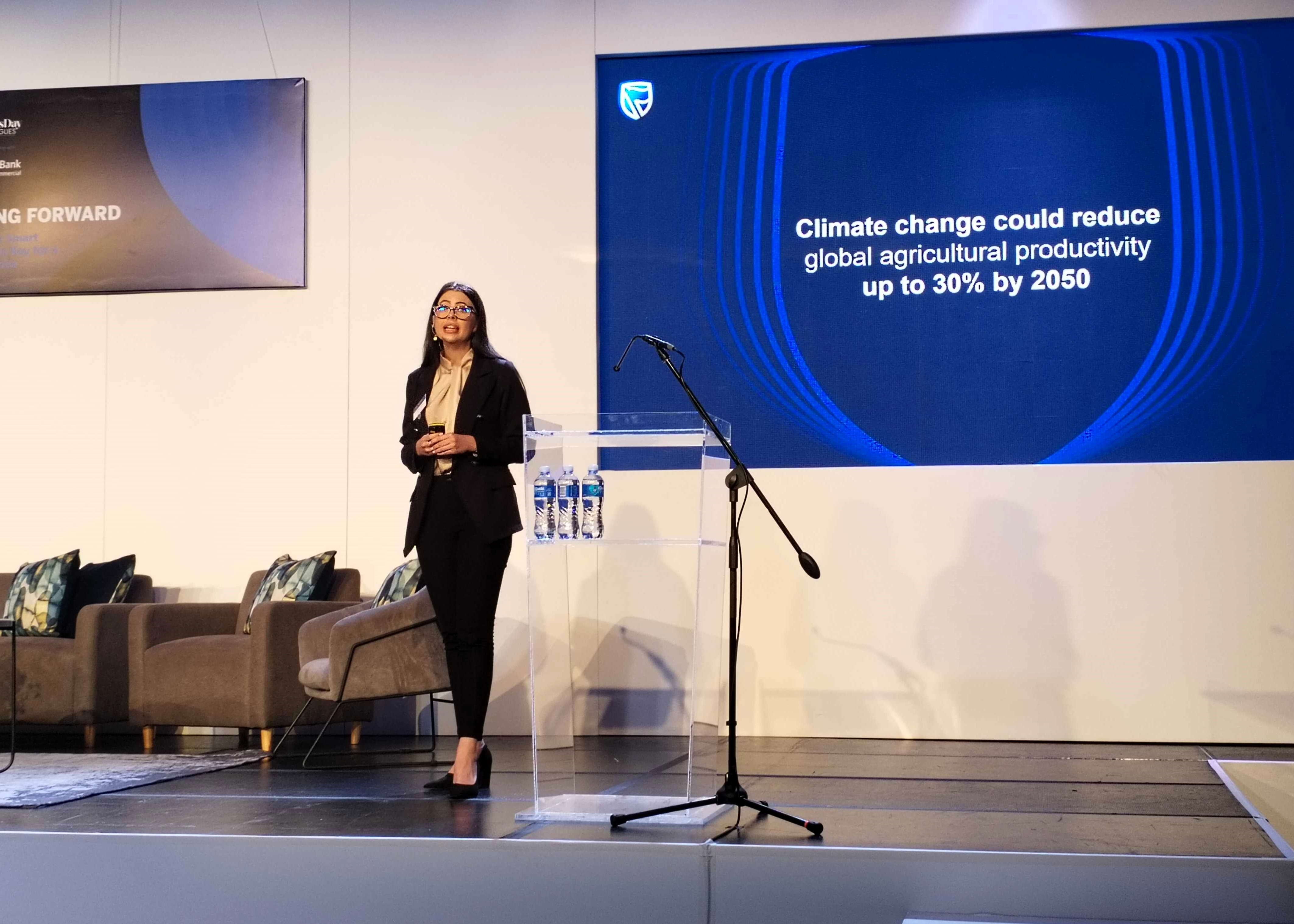Fintech
Smart tech leads African farms into the future
Standard Bank is helping farmers adopt sustainable methods through specialised financial support, writes JASON BANNIER.
Climate smart agriculture (CSA) technologies are reshaping farming in Africa by fostering resilience, opening new market avenues, boosting export potential, and enhancing supply chains. These themes were the focus of Standard Bank’s Business Day Dialogue held last week in Johannesburg under the “Farming Forward” theme. The event brought together industry leaders, policymakers, and innovators to discuss the future of African agriculture and strategies to address climate change.
The bank showcased specialised agri-finance solutions and policy guidance as vital tools for empowering both commercial and subsistence farmers to embrace climate-smart practices and strengthen the sector’s resilience.
“Fields that once flourished have turned to dust, leaving farmers to watch helplessly as their crops wither under the relentless sun,” said Dr Andrea Campher, senior manager in sustainability and agribusiness in business commercial banking of Standard Bank, during a keynote.
She says climate change could cut global agricultural productivity by an alarming 30% by 2050, according to the Food and Agriculture Organisation. However, CSA, incorporating technologies like electric tractors and irrigation drones, is being adopted to help mitigate these challenges and sustain productivity.
“It is said, if the farmer struggles, the farmworkers struggle, then the local business and local school, leaving a ripple effect on our rural economies. This personal story is not just an anecdote; it’s a reality for many.”
Future farming
Campher told Gadget: “As energy progresses and renewable energy is rolled out in [African] countries, you’ll see farmers take up more drones or electric tractors – if they get access to that type of equipment.
“At the end of the day, new technologies for farmers will focus on increasing profitability, helping with informed decision making, analysing climate trends, and collecting data to monetize – from carbon footprint to carbon credit.”
“What we’re looking at in agri-tech is how we can finance drones. We’ve seen that a lot of technology has developed how drones can be used for irrigation, pesticides or fertilizer spraying, as well as for farm safety – such as linking your camera systems.”
Campher said that precision agriculture, a CSA technique, focuses on optimising resource use, ensuring efficiency, and leveraging technology to gather essential data. With tools like satellite mapping, farmers can identify specific areas in their fields that require more water, targeted pesticide application, and additional fertiliser among other uses.
She said weather forecasting and installing weather systems on farms is an option that is also being implemented.
“Electric tractors do not have a big uptake in South Africa yet,” said Campher. “In Namibia some of our colleagues have been seeing the use of electric tricycles for berry farmers.”
“But the future will evolve, and we’re optimistic that electric and hydrogen tractors can play a role.”
The tech evolution and AI
Campher said that technology is advancing at an exponential rate, with new developments emerging every six months.
“AI – it’s incredible – especially when a rural farmer sits with a cell phone and he doesn’t have those advisors or extension offices.
“AI can play a big role to advise farmers on certain practices: when to plant, where should you get your inputs, and how to sell on markets. It can help with access to markets, and help with marketing strategies. There just needs to be education around that, but it can be very beneficial for farmers.”
Agri-tech and farming forward
Campher outlined the following agri-tech solutions during her keynote address:
- Precision agriculture: Precision farming uses data-driven tools such as IoT sensors, satellite imagery, and AI to optimise resource use, enhancing efficiency and sustainability. For African farmers facing water scarcity, smart irrigation and soil monitoring are essential, helping to conserve water and boost yields while reducing costs and emissions.
- Regenerative agriculture: Moving beyond conventional practices, regenerative farming enhances soil health and biodiversity through crop rotation, agroforestry, and livestock integration. These methods not only sequester carbon, contributing to climate mitigation, but also improve productivity and offer economic benefits, including the potential to earn carbon credits.
- Renewable energy on farms: Solar panels, wind turbines, and biodigesters are helping farms transition away from fossil fuels. For example, solar-powered irrigation supports water management and reduces emissions, enabling rural farmers to operate more sustainably and independently, even in areas with limited energy access.
- Climate-resilient crops and water management: Drought-resistant and flood-tolerant crops are vital for protecting food security. Water management technologies, such as drip irrigation and rainwater harvesting, further conserve water and help ensure reliable farming despite climate challenges. These innovations are especially critical in water-scarce regions of Africa.
- Carbon markets: Farmers can tap into carbon markets by earning credits through carbon-sequestering practices. This provides financial incentives for adopting sustainable methods and helps integrate farmers into a global climate solution, offering an additional revenue stream that supports both environmental and economic goals.
“Imagine a future where agriculture not only feeds the world but also serves as a robust buffer against climate change,” said Campher. “Together, let’s cultivate a future where our farms are not just sources of sustenance but powerful allies in the battle for a sustainable planet.”
* Jason Bannier is a data analyst at World Wide Worx and writer for Gadget.co.za. Follow him on Twitter and Threads at @jas2bann.


















